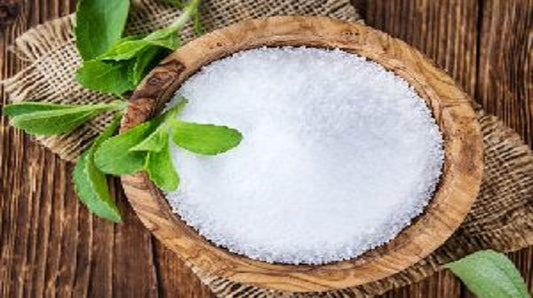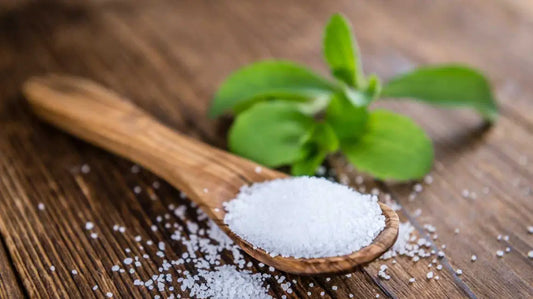Why use So Sweet Xylitol in place of Refined Sugar?

Xylitol is a naturally occurring compound that can be produced in trace amounts by the body and is found in the fibers of many fruits and vegetables. The primary source of xylitol for commercial usage is corn cobs, while it can also be obtained from polysaccharides found in the cell walls of birch and beech trees, rice, oat, wheat, and cotton husks. You're left with a white, crystalline powder that resembles sugar once the substance has been removed and processed. It has become a well-liked sweetener in food and health goods since it has the same sweetness as sugar.
Where Xylitol can be used?
Chewing gum and mints typically contain xylitol, which can be used in place of sugar in many baked goods and is simple to add to tea and coffee. To find out whether a product contains xylitol, look at the list of ingredients on the packet.
Nutritional information
With a low GI of 12, xylitol has little impact on insulin and blood sugar levels. As a result, it is thought to be a good substitute for those who have diabetes. It absorbs slowly and only has 2.4 calories per gram. The liver partially breaks it down before it moves to the intestines for further digestion.
So Sweet Xylitol's health benefits which attract its users.
With its low GI value of 12, Xylitol is broken down slowly, indicating that it does not cause a spike in blood sugar or insulin levels and may be helpful in reducing sugar cravings.
Xylitol is seen to have promising dental benefits. We know that diet plays a significant role in dental health and that too much sugar causes tooth decay and periodontal disease. Eating sugar causes tooth decay by creating a highly acidic condition in the mouth. Acidity strips teeth of enamel, causing them to
weaken and making them more vulnerable to attack by bacteria. Ordinarily, saliva bathes the mouth with an alkaline solution that neutralizes all acidity, helping the process of digestion. When saliva turns acidic because of too much sugar, bacteria in the mouth have a feeding frenzy, eating away at the enamel. Xylitol can help to prevent this by raising the pH to a more alkaline state, inhibiting the growth of bacteria that cause cavities.
Although the consensus is that xylitol is good for dental health, some opponents claim that when eaten in excess it may have unfavorable effects on the digestive tract and its ‘natural’ label is misleading. During the extraction process, chemicals are added to produce xylitol and there have been reports that
it has a mild laxative effect, which may, for some people, cause digestive discomfort.
Where Xylitol can be used?
Chewing gum and mints typically contain xylitol, which can be used in place of sugar in many baked goods and is simple to add to tea and coffee. To find out whether a product contains xylitol, look at the list of ingredients on the packet.
Nutritional information
With a low GI of 12, xylitol has little impact on insulin and blood sugar levels. As a result, it is thought to be a good substitute for those who have diabetes. It absorbs slowly and only has 2.4 calories per gram. The liver partially breaks it down before it moves to the intestines for further digestion.
So Sweet Xylitol's health benefits which attract its users.
With its low GI value of 12, Xylitol is broken down slowly, indicating that it does not cause a spike in blood sugar or insulin levels and may be helpful in reducing sugar cravings.
Xylitol is seen to have promising dental benefits. We know that diet plays a significant role in dental health and that too much sugar causes tooth decay and periodontal disease. Eating sugar causes tooth decay by creating a highly acidic condition in the mouth. Acidity strips teeth of enamel, causing them to
weaken and making them more vulnerable to attack by bacteria. Ordinarily, saliva bathes the mouth with an alkaline solution that neutralizes all acidity, helping the process of digestion. When saliva turns acidic because of too much sugar, bacteria in the mouth have a feeding frenzy, eating away at the enamel. Xylitol can help to prevent this by raising the pH to a more alkaline state, inhibiting the growth of bacteria that cause cavities.
Although the consensus is that xylitol is good for dental health, some opponents claim that when eaten in excess it may have unfavorable effects on the digestive tract and its ‘natural’ label is misleading. During the extraction process, chemicals are added to produce xylitol and there have been reports that
it has a mild laxative effect, which may, for some people, cause digestive discomfort.









